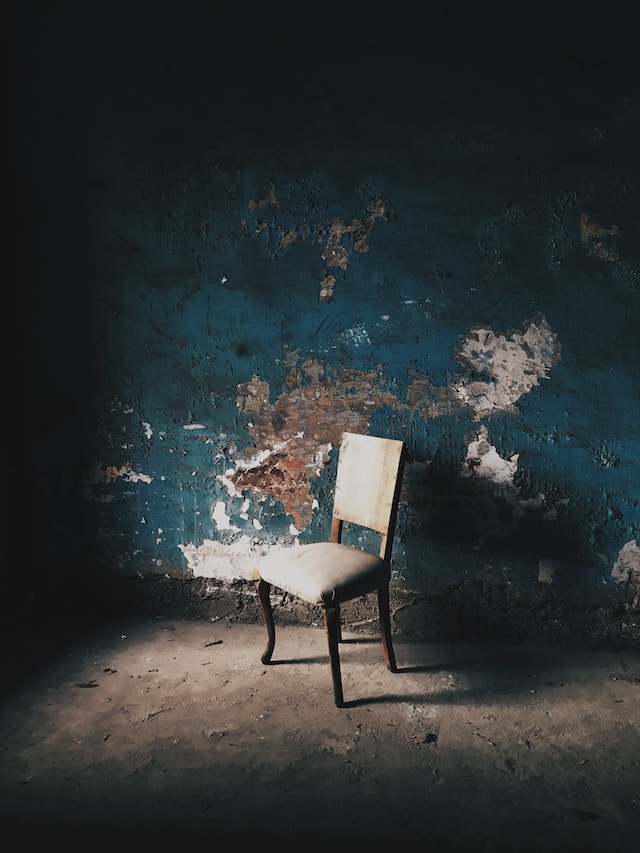
As a child, I went through a long phase of loving science. Many years I asked for chemistry and physics kits for Christmas and would be hyper focused on completing the various experiments before school resumed. The elementary school I attended in fifth grade would send five students to space camp, and I was selected. I had an elite understanding of elementary school science, and I prized every minute of it. My fellow nerds from the neighboring elementary schools and I took a bus to Space Camp in Huntsville, Alabama, the location of the U.S. Space and Rocket Center Museum near NASA’s Marshall Space Flight Center. We learned about space theories. I thought for sure I would end up in a science driven career, but I was led to the less exact science of when human relationships intersect with the law. To this day, my early interest in all things science will occasionally spark.
You may have seen my blog about chaos and how it is revealed throughout life. If you missed it, you can read it here. I was reminded of thermodynamics when thinking about chaos, specifically the second law. College textbooks are written on the subject, but the essence simply stated is as follows:
A system in isolation will increase its chaos.
The theory behind the second law of thermodynamics is the natural tendency of an orderly system is to become disorderly over time. Nothing stays fresh —think produce or new clothes. New clothes are great, but become faded, threadbare, and ultimately turn to dust, even with the best of care —kind of like a child’s favorite teddy bear which becomes unrecognizable by the time she graduates high school.
In science this theory applies to all moving things, even people. It takes immense biological order and precision for life to begin, and that perfect system slowly becomes more chaotic and disorderly as we age. Ultimately, the system collapses and we die. It is the only thing every living creature on earth has in common.
On some level, this law applies to your life on a metaphorical level too. It is important to note when I am talking about “isolation” in this sense, I am not talking about being “lonely.” It would be more synonymous with “stagnant” or “unchanged.” Some people find comfort in the lack of change in their lives. Certainly, a life without change has a specific appeal because an existence without surprises or spontaneity is easier to control. When your situation is unpleasant, sometimes the natural response is to freeze because with change comes risk. Many people would rather their situation simply not get any worse rather than risk the possibility of things being bad before getting better. Little do they know, this mindset is not the natural order of life. Resentment will build, and minor issues fester into major problems. The illusion of control vanquishes in the blink of an eye. People underestimate their ability to have dominion over their own lives. It just feels safer to remain in isolation, or in other words, stay with the familiar.
Control is an illusion.
We do have choices though. We may not always have the options we prefer, but we always get to choose. Every day we make decisions that impact our lives and the lives of other people. When you stop making new choices and stay stuck in the place you have been because it feels safe or familiar, chaos will come. Said another way, if you are not moving forward, natural law says you will be moving backwards. A system in isolation will increase its chaos.
There is no stoppage. Life moves with or without you. Your situation changes whether you actively choose to alter it or not. This applies to everyone. While you may be choosing to remain isolated in a situation detrimental to your well-being, other people in your life are making choices that impact you whether you want to adapt or not. All of a sudden, you will find yourself in a place of consciousness or life circumstances you do not recognize at all —with no idea how you even got here.
The fear of making the wrong choice is not imaginary. It is rooted in shame. The illusion of control helps us adjust our environment, even slightly, so everything is in the right place. It feels safe. After all, doesn’t everyone take steps to avoid shame? As mentioned before, sometimes we adjust simply to keep our life in order. However, while guarding the familiar, things can still get worse. Remember, a system in isolation will increase its chaos. Said another way, if you are not making choices to grow, change, adapt and experience something new, chaos increases. It’s science.
The good news is you have more dominion than you think. You can choose to do or be whatever you want, whenever you want. There are no rules because it’s your life.
When I was young and being selfish my parents would ask, “Do you think the world revolves around you?”
Obviously, when statements like that were made, the objective was for me to think about how my decisions impact other people. But ironically, my world does revolve around me because it is my life. Other people have the privilege of being a part of it. We have the honor of being in other people’s lives too, but that is their choice, just like it is yours. Do no stay stuck in a situation that is unpleasant out of fear, shame, or the likelihood of being judged. Grab the steering wheel of your life and take yourself where you want to go instead of sitting in the backseat in your own journey. Life will get good when you actively start making positive choices, not when you sit around and wait for the good part to happen.
Chaos is scientific, but active decision making minimizes its impact. Isolating in your situation makes the chaos grow and grow, eventually leading to complete breakdown. Regardless of your age and current situation, there is no bad time to start making choices that enhance your happiness and wellness. If a system in isolation will increase its chaos, to avoid chaos, we must avoid isolation. To choose something new is to choose life, because the absence of new is not safety, it is chaos.
Mandalin Blanton is a recent graduate from the Mississippi College School of Law, currently studying for the bar exam. She is a high achieving student with a competitive edge, whose family has worked in and around the foster care system her entire life, making her a great fit for family law. Originally from Asheville, North Carolina, she graduated from Mississippi State University with a degree in Psychology. Her growing experience in family law, coupled with her integrity and adaptability, make her eager to assist you regardless of the circumstances. She will begin the daily practice of family law on July 31, 2023, and may be reached at mandalin@robertson.ms





